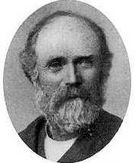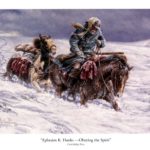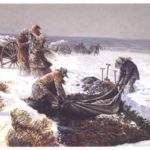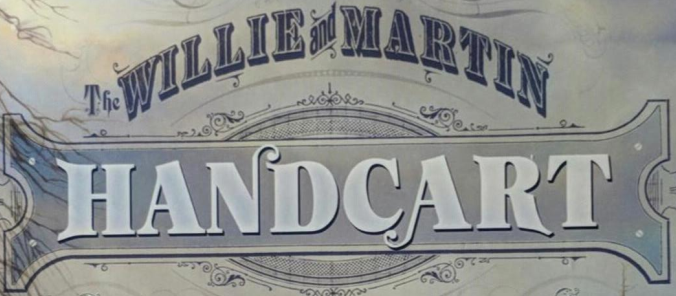
Just what relationship is Edward Martin to the Paul and Afton Felt family?
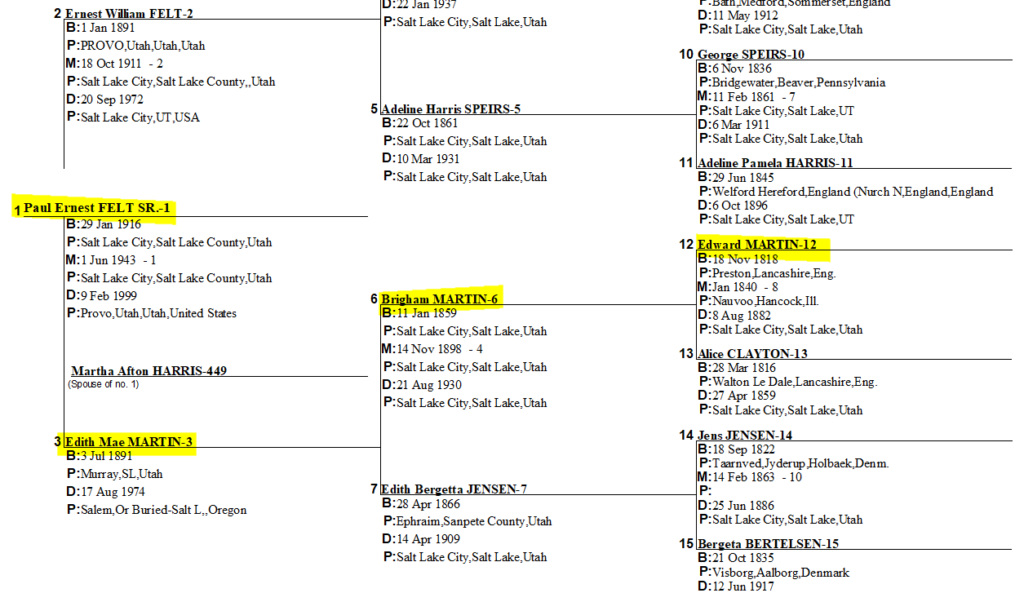
Click Here to see additional information regarding Edward Martin
The story of the Willie n Martin company is from the book The Willie & Martin Handcart Story with scans being done using a standard smartphone – rather clumsy to be sure yet the content is considered more important than the limited efforts of this writer.
Introduction
Mae Martin Felt (mother of Paul E Felt) is the granddaughter of Edward Martin
The picture on the
01
Chapter 1
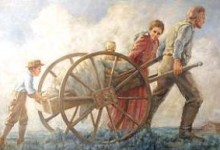
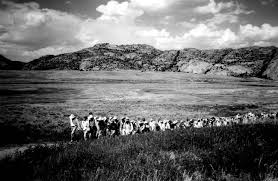
02
Chapter 2
03
Chapter 3
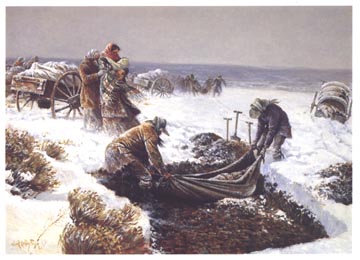
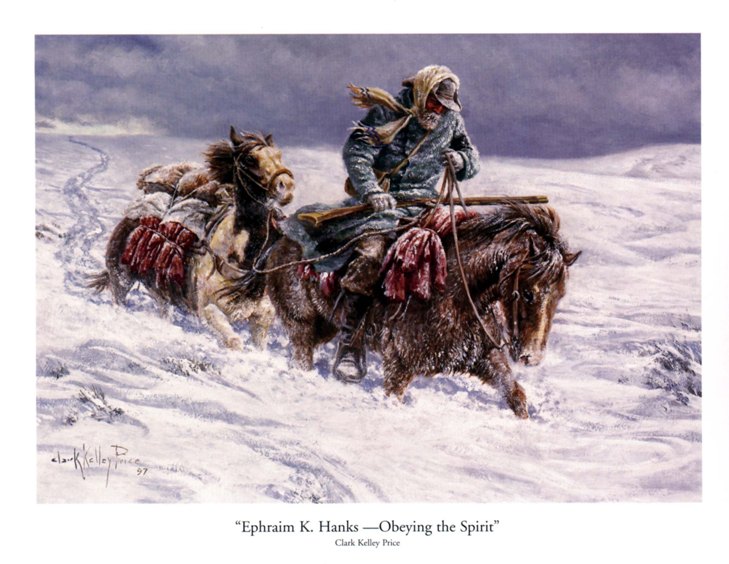
04
Chapter
05
Chapter 5
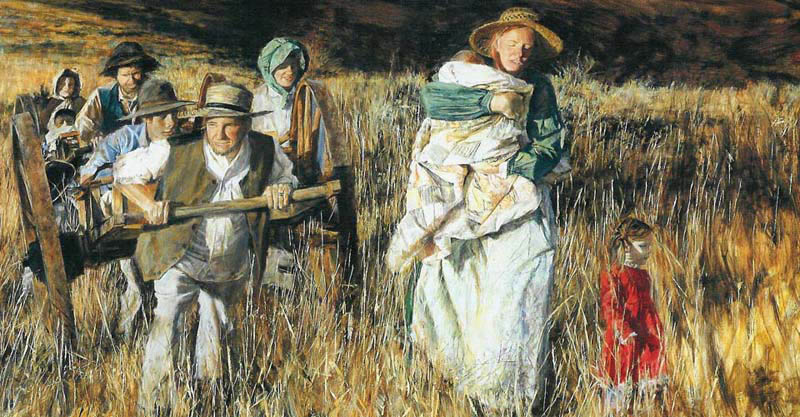
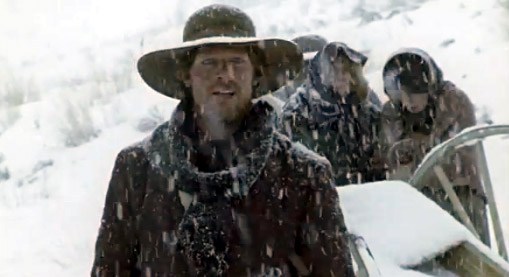
06
Chapter 6
07
Chapter 7
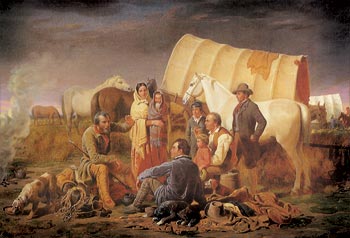

08
Chapter 8
Rescue Narration
“In the fall of 1856, I spent considerable of my time fishing in Utah Lake; and in traveling backward and forward between that lake and Salt Lake City, I had occasion to stop once over night with Gurnsey Brown, in Draper, about nineteen miles south of Salt Lake City. Being somewhat fatigued after the day’s journey, I retired to rest quite early, and while I still lay wide awake in my bed I heard a voice calling me by name, and then saying: `The handcart people are in trouble and you are wanted; will you go and help them?’
I turned instinctively in the direction from whence the voice came and beheld an ordinary sized man in the room. Without hesitation I answered `Yes, I will go if I am called.’
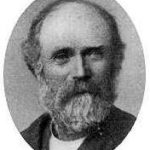
Gurnsey Brown
I then turned around to go to sleep, but had laid only a few minutes when the voice called a second time, repeating almost the same words as on the first occasion. My answer was the same as before. This was repeated a third time.
“When I got up the next morning I said to Brother Brown, `The handcart people are in trouble, and I have promised to go out and help them;’ but I did not tell him of my experiences during the night.
“I now hastened to Salt Lake City, and arrived there on the Saturday, preceding the Sunday on which the call was made for volunteers to go out and help the last handcart companies in. When some of the brethren responded by explaining that they could get ready to start in a few days; I spoke out at once saying, `I am ready now!’ The next day I was wending my way eastward over the mountains with a light wagon all alone.
“The terrific storm which caused the immigrants so much suffering and loss overtook me near the South Pass, where I stopped about three days with Reddick N. Allred, who had come out with provisions for the immigrants. The storm during these three days was simply awful. In all my travels in the Rocky Mountains both before and afterwards, I have seen no worse. When at length the snow ceased falling, it lay on the ground so deep that for many days it was impossible to move wagons through it.
“Being deeply concerned about the possible fate of the immigrants, and feeling anxious to learn of their condition, I determined to start out on horseback to meet them; and for this purpose I secured a pack-saddle and two animals (one to ride and one to pack), from Brother Allred, and began to make my way slowly through the snow alone. After traveling for some time I met Joseph A. Young and one of the Garr boys, two of the relief company which had been sent from Salt Lake City to help the companies. They had met the immigrants and were now returning with important dispatches from the camps to the headquarters of the Church, reporting the awful condition of the companies.
“In the meantime I continued my lonely journey, and the night after meeting Elders Young and Garr, I camped in the snow in the mountains. As I was preparing to make a bed in the snow with the few articles that my pack animal carried for me, I thought how comfortable buffalo robe would be on such an occasion, and also how I could relish a little buffalo meat for supper, and before lying down for the night I was instinctively led to ask the Lord to send me a buffalo.
Now, I am a firm believer in the efficacy of prayer, for I have on many different occasions asked the Lord for blessings, which He in His mercy has bestowed on me. But when I, after praying as I did on that lonely night in the South Pass, looked around me and spied a buffalo bull within fifty yards of my camp, my surprise was complete; I had certainly not expected so immediate an answer to my prayer. However, I soon collected myself and was not at a loss to know what to do. Taking deliberate aim at the animal, my first shot brought him down; he made a few jumps only, and then rolled down into the very hollow where I was encamped. I was soon busily engaged skinning my game, finishing which, I spread the hide on the snow and placed my bed upon it. I next prepared supper, eating tongue and other choice parts of the animal I had killed, to my heart’s content. After this I enjoyed a refreshing night’s sleep, while my horses were browsing on the sage brush.
“Early the next morning I was on my way again, and soon reached what is known as the Ice Springs Bench. There I happened upon a heard of buffalo, and killed a nice cow. I was impressed to do this, although I did not know why until a few hours later, but the thought occurred to my mind that the hand of the Lord was in it, as it was a rare thing to find buffalo herds around that place at this late part of the season. I skinned and dressed the cow; then cut up part of its meat in long strips and loaded my horses with it. Thereupon I resumed my journey, and traveled on till towards evening
Location site – Eph (Ephraim Hanks) rides in with buffalo meat to the camp of the Martin Handcart Company – photo taken by Sherry Smith
I think the sun was about an hour high in the west when I spied something in the distance that looked like a black streak in the snow. As I got near to it, I perceived it moved, then I was satisfied that this was the long looked for handcart company, led by Captain Edward Martin. I reached the ill-fated train just as the immigrants were camping for the night. The sight that met my gaze as I entered their camp can never be erased from my memory. The starved forms and haggard countenances of the poor suffers, as they moved about slowly, shivering with cold, to prepare their scanty evening meal was enough to touch the stoutest heart.
When they saw me coming, they hailed me with joy inexpressible, and when they further beheld the supply of fresh meat I brought into camp, their gratitude knew no bounds. Flocking around me, one would say, `Oh, please, give me a small piece of meat;’ another would exclaim, `My poor children are starving, do give me a little;’ and children with tears in their eyes would call out, `Give me some, give me some.’ At first I tried to wait on them and handed out the meat as they called for it; but finally I told them to help themselves. Five minutes later both my horses had been released of their extra burden-the meat was all gone, and the next few hours found the people in the camp busily engaged in cooking and eating it, with thankful hearts.
“A prophecy had been made by one of the brethren that the company should feast on buffalo meat when their provisions might run short; my arrive in their camp, loaded with meat, was the beginning of the fulfillment of that prediction; but only the beginning, as I afterwards shot and killed a number of buffalo for them as we journeyed along.
“When I saw the terrible condition of the immigrants on first entering their camp, my heart almost melted within me. I rose up in my saddle and tried to speak cheering and comforting words to them. I told them also that they should all have the privilege to ride into Salt Lake City, as more teams were coming.
“After dark, on the evening of my arrival in the handcart camp, a woman crying aloud pass the camp fire where I was sitting. Wondering what was the matter, my natural impulse led me to follow her. She went straight to Daniel Tyler’s wagon, where she told the heart-rending story of her husband being at the point of death, and in pleading tones she asked Elder Tyler to come and administer to him. This good brother, tired and weary as he was after pulling handcarts all day, had just retired for the night, and was a little reluctant in getting up; but on this earnest solicitation he soon arose, and we both followed the woman to the tent, in which we found the apparently lifeless form of her husband.
On seeing him, Elder Tyler remarked, `I cannot administer to a dead man.’ Brother Tyler requested me to stay and lay out the supposed dead brother, while he returned to his wagon to seek that rest which he needed so much. I immediately stepped back to the camp fire where several of the brethren were sitting and addressing myself to Elders Grant, Kimball and one or two others, I said: `Will you boys do just as I tell you?’ The answer was in the affirmative.
We then went to work and built a fire near the tent which I and Elder Tyler had just visited; next we warmed some water and washed the dying man, whose name was Blair, from head to foot. I then anointed him with consecrated oil over his whole body, after which we laid hands on him and commanded him in the name of Jesus Christ to breathe and live. The effect was instantaneous. The man who was dead to all appearances immediately began to breathe, sat up in his bed and commenced to sang a hymn. His wife, unable to control her feelings of joy and thankfulness, ran through the camp exclaiming: `My husband was dead, but is now alive. Praised be the name of God. The man who brought the buffalo meat has healed him.’
This circumstance caused a general excitement in the whole camp, and many of the drooping spirits began to take fresh courage from that very hour. After this the greater portion of my time was devoted to waiting on the sick.
`Come to me,’ `help me,’ `please administer to my sick wife,’ or `my dying child,’ were some of the requests that were made of me almost hourly for some time after I had joined the immigrants, and I spent days going from tent to tent administering to the sick.
Truly the Lord was with me and others of his servants who labored faithfully together with me in that day of trial and suffering. The result of this our labor of love certainly redounded to the honor and glory of a kind and merciful God. In scores of instances when we administered to the sick, and rebuked the diseases in the name of the Lord Jesus Christ, the sufferers would rally at once; they were healed almost instantly. I believe I administered to several hundreds in a single day; and I could give names of many whose lives were saved by the power of God. But I will only give the details in one more instance.
“One evening after having gone as far as Fort Bridger I was requested by a sister to come and administer to her son, whose name was Thomas. He was very sick, indeed, and his friends expected he would die that night. When I came to the place where he lay he was moaning pitifully, and was almost too weak to turn around in his bed. I felt the power of God resting upon me, and addressing the young man, said, `Will you believe the words I tell you?’ His response was `Yes.’ I then administered to him, and he was immediately healed. He got up, dressed himself, and danced a hornpipe on the end-board of a wagon, which I procured for that purpose. But notwithstanding these manifestations of the Lord’s goodness, any of the immigrants whose extremities were frozen, lost their limbs, either whole or in part. Many such I washed with water and castile soap, until the frozen parts would fall off, after which I would sever the shreds of flesh from the remaining portions of the limbs with my scissors. Some of the emigrants lost toes, others fingers, and again others whole hands and feet; one woman who now resides in Koosharem, Piute Co., Utah, lost both her legs below the knees and quite a number who survived became cripples for life.
But so far as I remember there were no fresh cases of frozen limbs after my arrival in camp. As the train moved forward in the day time I would generally leave the road in search of game; and on these expeditions killed and dressed a number of buffaloes, distributing their meat among the people. On one occasion when I was lagging behind with a killed buffalo, an English girl by the name of Griffin gave out completely, and not being able to walk any further, she lay down her head in the snow. When I saw her disabled condition I lifted her on my saddle, the horse being loaded with buffalo meat, and in this condition she road into camp.
“Soon more relief companies were met and as fast as the baggage was transferred into the wagons, the handcarts were abandoned one after another, until none were left.
“I remained with the immigrants until the last of Captain Martin’s company arrived in Salt Lake City on the thirtieth day of November, 1856.
“I have but a very little to say about the sufferings of Captain Martin’s company before I joined it; but it had passed through terrible ordeals. Women and the larger children helped the men to pull the handcarts, and in crossing the frozen streams, they had to break the ice with their feet. In fording the Platte River, the largest stream they had to cross after the cold weather set in, the clothes of the immigrants were frozen stiff around their bodies before they could exchange them for others. This is supposed to have been the cause of the many deaths which occurred soon afterwards. It has been stated on good authority that nineteen immigrants died one night. The survivors who performed the last acts of kindness to those who perished, were not strong enough to dig the graves of sufficient depth to preserve the bodies from the wild beasts, and wolves were actually seen tearing open the graves before the company was out of sight. Many of the survivors, in witnessing the terrible afflictions and losses, became at last almost stupefied or mentally dazed, and did not seem to realize the terrible condition they were in. The suffering from the lack of sufficient food also told on the people. When the first relief teams met the immigrants, there was only one day’s quarter rations left in camp.”
Note: The above is a quotation from http://wiki.hanksplace.net/index.php/Handcart_Companies_of_1856
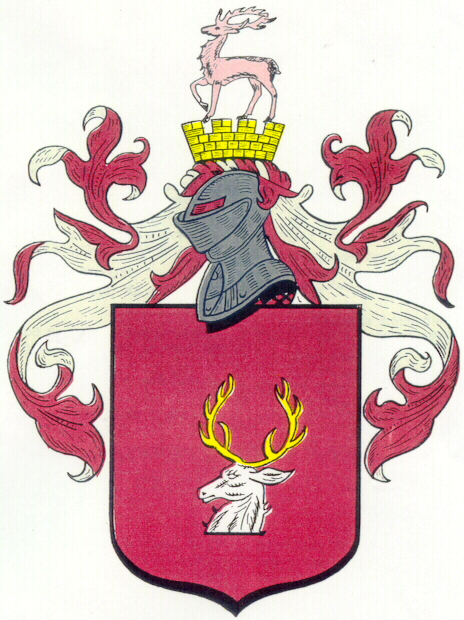
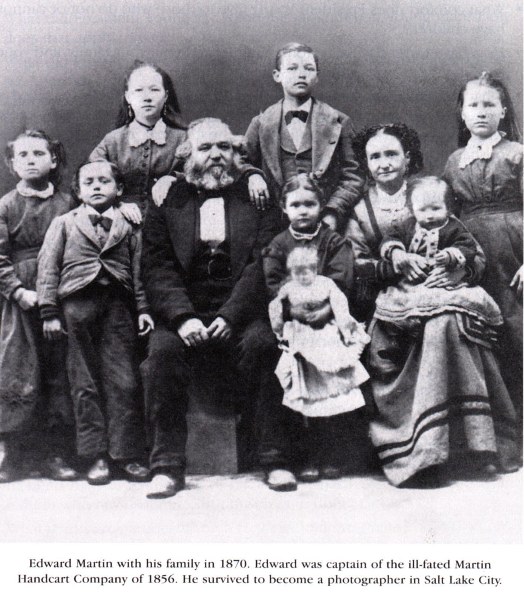
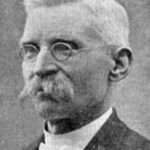 Andrew Jensen, Church Historian
Andrew Jensen, Church Historian